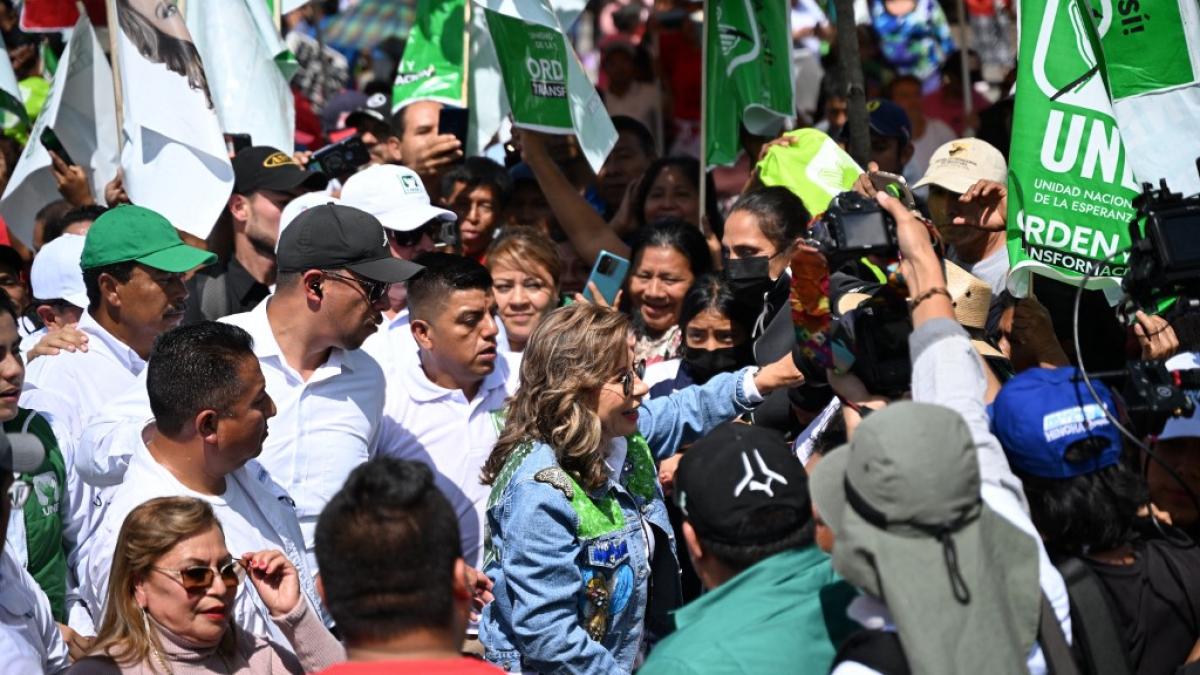Guatemala will decide its future for the next four years this Sunday by holding general elections in elections that will determine its new president, vice president and 160 members of Congress for the 2024-2028 term.
The 9.3 million voting Guatemalans will define the new Central American Parliament (20 legislators) and 340 new municipal corporations.
The electoral process has been the most controversial since the introduction of democracy in 1986 and was tainted last week with allegations by US media outlet New York Times detailing allegations of bribery of Supreme Court Justices Electoral (TSE).
According to experts, the TSE has added to this the arbitrary expulsion of three candidates who were likely to win the election: tribal leader Thelma Cabrera, son of former president Alvaro Arzu Irigoyen (1996-2000), Roberto Arzu García Granados. , and businessman Carlos Pineda, chairman of the poll.
Remaining Candidates
According to opinion polls released last week, former first lady Sandra Torres Casanova of the National Trust (UNE) appears to be the leading candidate for the Guatemalan vote.
Torres Casanova is the wife of former President Alvaro Colomb Caballeros (2008-2012) and is running for a third term.
For his part, former United Nations official Edmond Mullet always comes in second place according to opinion polls, followed by Juri Rios Sosa, daughter of coup dictator Efrain Rios Montt.
If no candidate receives half the votes, the Guatemalan constitution stipulates that there must be a second round of elections scheduled for next August 20.
The winner of the elections, on January 14, will replace incumbent President Alejandro Giammatte, who is considered one of the continent’s four least popular governments according to a survey published this week.
Nearly 3,500 polling stations
Less than 24 hours before the start of the elections, the Supreme Electoral Tribunal reported that there were no reports from 3,482 polling centers established in 22 departments (provinces) of the Central American country.
According to the same source, there are 24,427 polling stations, allowing 9.3 million registered Guatemalans to vote on five individually issued printed ballots.
There are ballots to elect a president, representatives to Congress by national list, representatives to Congress by region, representatives to the Central American Parliament and municipal mayors.
With 2.1 million people authorized to vote in the metropolitan area, Guatemala City, in the center of the country, has the largest concentration of polling stations.
Similarly, the Supreme Election Tribunal has 17 polling stations in 10 US states where 90,000 people are registered to vote. However, lower participation is expected as in the past.
The elections are being held amid uncertainty and apathy, with 13.5 percent of people planning to vote, according to a survey published this week by ProDatos in local newspaper Prensa Libre.
In the past three months, politicians, analysts and international observers have pointed out that the road to the election has been marred by irregularities and questionable actions by election officials.

“Music ninja. Analyst. Typical coffee lover. Travel evangelist. Proud explorer.”



:quality(85)/cloudfront-us-east-1.images.arcpublishing.com/infobae/KAYSXK65OZG55CR3YX225WI6Z4.jpg)



More Stories
Powerball: Maryland supermarket employee's mistake doubles his prize | RPPUSA
America has the most dangerous and advanced nuclear submarine in the world
News, protests in universities and more